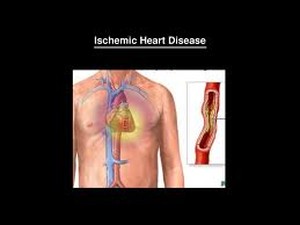Ischemia is the medical term used to define the situation where a part  of the body is not getting enough oxygen. Generally, ischemia is due to blood shortage to the certain part, primarily caused by a narrowing or blockage on one or more of the arteries. The arteries circulate oxygen and nutrients to the different body organs. Nevertheless, ischemia is usually a temporary problem and can be treated adequately. On the other hand, chronic ischemia is a condition where the arteries become extremely narrowed that blood flow is consistently restricted.
of the body is not getting enough oxygen. Generally, ischemia is due to blood shortage to the certain part, primarily caused by a narrowing or blockage on one or more of the arteries. The arteries circulate oxygen and nutrients to the different body organs. Nevertheless, ischemia is usually a temporary problem and can be treated adequately. On the other hand, chronic ischemia is a condition where the arteries become extremely narrowed that blood flow is consistently restricted.
Types of Ischemia
The types of ischemia are named after the area it affects.
- Myocardial ischemia (heart)
- Limited blood flow to the heart muscle due to blockage of coronary artery
- May lead to angina, arrhythmia, or worse, heart attack
- Cerebral ischemia (brain)
- May lead to stoke
- Intestinal ischemia
- Affecting the intestines
- Hepatic ischemia (liver)
- Usually caused by hypotension, infection, severe bleeding, heart failure, vasculitis, arrhythmia, among others
- Critical limb ischemia
- Affecting blood flow to the extremities
- Testicular ischemia
- Affecting testicles
Causes of Ischemia
There are different causes for the arteries to clog. Some of the most common causes of ischemia include:
- Atherosclerosis or plaque buildup in the arteries
- Vasculitis or inflammation of blood vessels
- Blood clots (either thrombi or emboli)
- Coronary artery disease
- Peripheral artery disease
Risk Factors of Ischemia
Some risk factors increased a person’s chance for ischemia. The major risk factors are the following:
- Increasing age
- Stress
- Smoking
- Hypertension
- High cholesterol
- Obesity
- Diabetes
- Alcohol and drug abuse
- Physical inactivity
- Coronary heart disease
- Previous heart attack
- Family history of ischemic diseases
Symptoms of Ischemia
There are different symptoms for the various types of ischemia. Some symptoms are more typically associated with a particular type of ischemia
- Myocardial ischemia
- Angina
- Neck or jaw pain
- Arm pain
- Difficulty breathing
- Nausea and vomiting
- Clammy skin
- Cerebral ischemia
- Loss of consciousness
- Difficulty speaking
- Loss of coordination
- Loss of vision or impairment
- Weakness
- Intestinal ischemia
- Abdominal pain
- Diarrhea, sometimes accompanied by bloody stools
- Vomiting
- Bloating
- Unintended weight loss
- Hepatic ischemia
- Usually asymptomatic
- Critical limb ischemia
- Severe pain
- Skin sores
- Cyanosis
- Testicular ischemia
- Testicular pain
- Silent ischemia
- No symptoms
Treatment for Ischemia
It is always important to seek immediate medical care if one is experiencing any symptoms of ischemia as it is always a medical emergency, no matter its location. Treatment for ischemia is dependent on the underlying cause, but its objective is to restore normal blood flow to minimize tissue damage and death. These include:
- Drug medications for blood clots
- Thawing and warming tissues for frostbite injuries
- Surgery for narrowing clogged arteries, etc.
It is always important to recognize medical emergencies avoid aggravating damages and even death. Registering for first aid classes will help sharpen skills to recognize symptoms for medical emergencies, such as ischemia.
